9 Best Herbal Tinctures For Nail Fungus
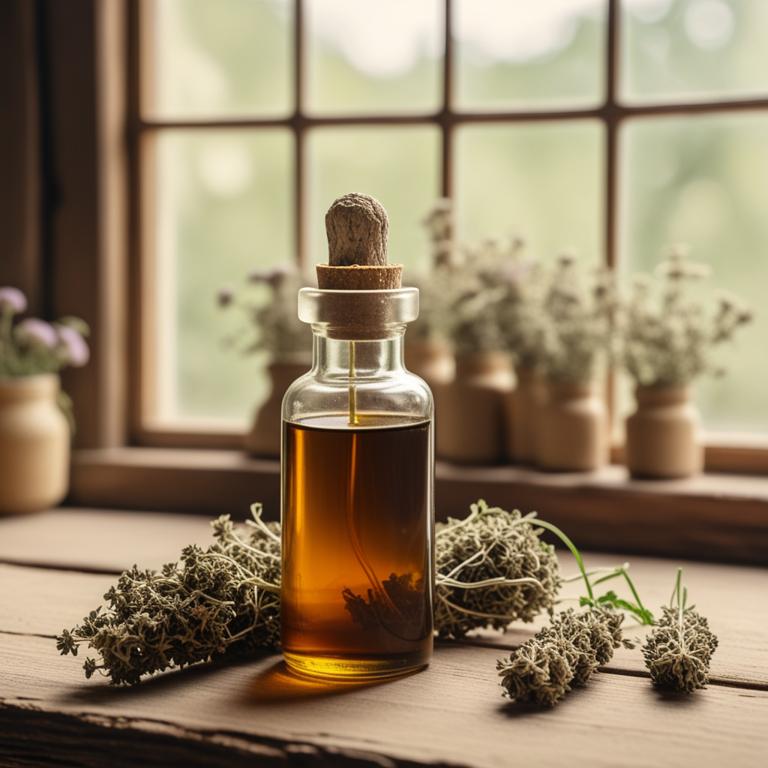
Herbal tinctures for nail fungus are a natural, liquid solution made from concentrated plant extracts used to treat fungal infections of the nails, typically caused by fungi such as Trichophyton, Microsporum, and Epidermophyton.
The benefits of using herbal tinctures to treat nail fungus include their ability to promote healthy nail growth, reduce fungal infections, and eliminate unpleasant odors associated with the condition.
Some examples of herbal tinctures used to treat nail fungus include Tea Tree Oil, which has antifungal properties that help combat fungal infections, Oregano Oil, which has antibacterial and antifungal properties that aid in the healing process, and Garlic Oil, which has antifungal and antibacterial properties that help to prevent the spread of fungal infections.
Additionally, other herbal tinctures such as Olive Leaf Extract, Lavender Oil, and Echinacea also show potential in treating nail fungus due to their antifungal and antibacterial properties, which can help to combat fungal infections and promote healthy nail growth.
According to "Mycoses", tinctures for nail fungus may contain plant extracts such as tea tree oil, which have shown promising antifungal activity in clinical trials.
Below there's a list of the 9 best herbal tinctures for nail fungus.
- 1. Melaleuca alternifolia tinctures
- 2. Curcuma longa tinctures
- 3. Allium sativum tinctures
- 4. Origanum vulgare tinctures
- 5. Thymus vulgaris tinctures
- 6. Syzygium aromaticum tinctures
- 7. Cinnamomum verum tinctures
- 8. Zingiber officinale tinctures
- 9. Eucalyptus globulus tinctures
Also you may be interested in...
TODAY'S FREE BOUNDLE
Herb Drying Checklist + Herbal Tea Shopping List + Medicinal Herbs Flashcards
Enter you best email address below to receive this bundle (3 product valued $19.95) for FREE + exclusive access to The Aphotecary Letter.
$19.95 -> $0.00
1. Melaleuca alternifolia tinctures
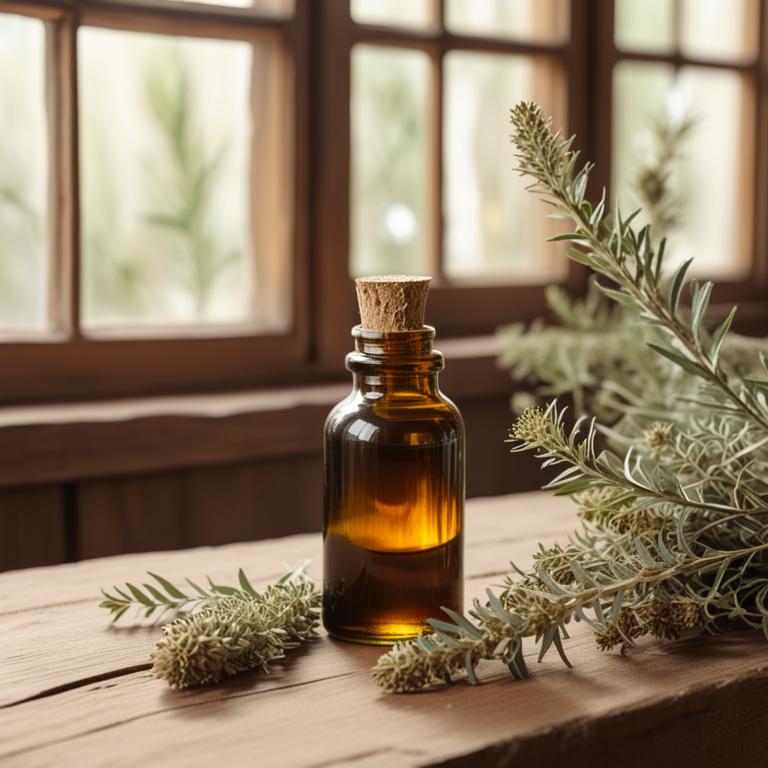
Melaleuca alternifolia tinctures have been traditionally used to treat nail fungus, a common condition characterized by thickened, discolored, and brittle nails.
The antifungal properties of Melaleuca alternifolia tinctures, particularly its high content of cineole and terpinen-4-ol, help to inhibit the growth of fungal organisms responsible for this ailment.
These bioactive constituents work synergistically to reduce inflammation, promote healthy nail growth, and eliminate fungal spores, ultimately leading to the clearance of fungal infections from the nail.
The use of Melaleuca alternifolia tinctures to treat nail fungus has been associated with improved nail appearance, reduced risk of infection, and enhanced overall nail health.
Related Study
According to "Mycoses", Melaleuca alternifolia tinctures for nail fungus have some positive outcomes attributed to the intervention in all four randomized clinical trials where tea tree oil preparations were tested.
2. Curcuma longa tinctures

Curcuma longa tinctures have been traditionally used to treat nail fungus ailment due to their antimicrobial and antifungal properties.
These properties help to inhibit the growth of fungal organisms, such as Trichophyton rubrum, that cause the infection.
The bioactive constituents of Curcuma longa, including curcumin, demethoxycurcumin, and bisdemethoxycurcumin, have been found to exhibit potent antifungal activity, contributing to the treatment of nail fungus.
The benefits of using Curcuma longa tinctures to treat nail fungus include reduced symptoms, improved nail health, and a lower risk of recurrence, making it a popular natural remedy for this common condition.
Related Study
According to the study, Curcuma longa tinctures for nail fungus may be effective due to its antifungal activity, as it showed comparable growth inhibition of Candida albicans on disc diffusion assay to the antifungal nystatin.
3. Allium sativum tinctures
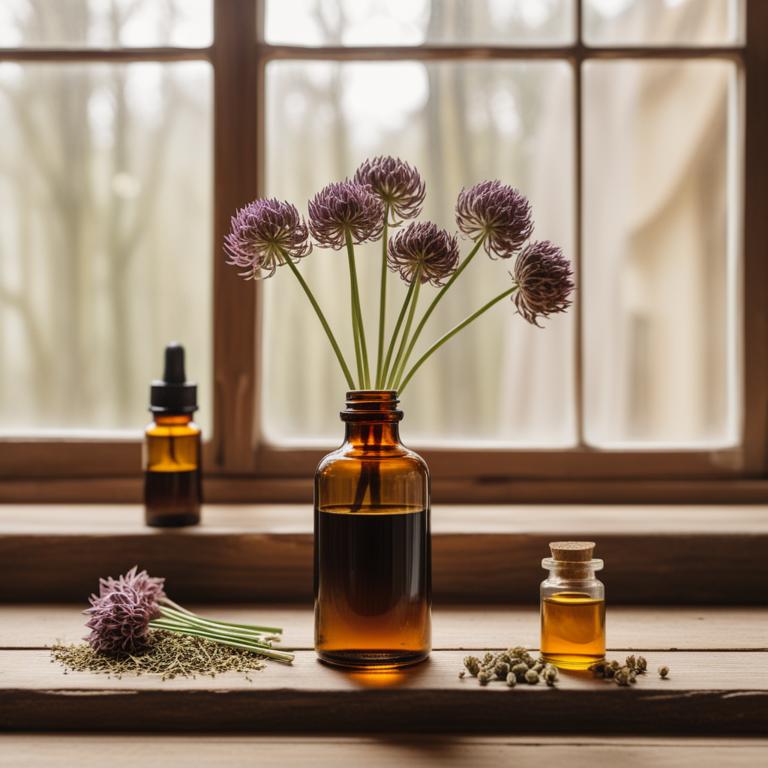
Allium sativum tinctures, derived from the garlic plant, have been used to treat nail fungus due to their antimicrobial and antifungal properties.
These properties help to combat the fungal infection by inhibiting the growth of fungi that cause the disease, ultimately leading to the healing of the affected nail.
The bioactive constituents of Allium sativum tinctures, including allicin and ajoene, play a crucial role in treating nail fungus by exhibiting antifungal activity and reducing the severity of the infection.
The benefits of using Allium sativum tinctures to treat nail fungus include their natural origin, effectiveness in reducing fungal growth, and minimal risk of side effects associated with conventional treatments.
Related Study
According to "Molecules (Basel, Switzerland)", Allium sativum tinctures for nail fungus have shown antifungal effects against certain species, such as Meyerozyma guilliermondii and Rhodotorula mucilaginosa, and also possess antioxidant properties that can help reduce inflammation associated with onychomycosis.
4. Origanum vulgare tinctures
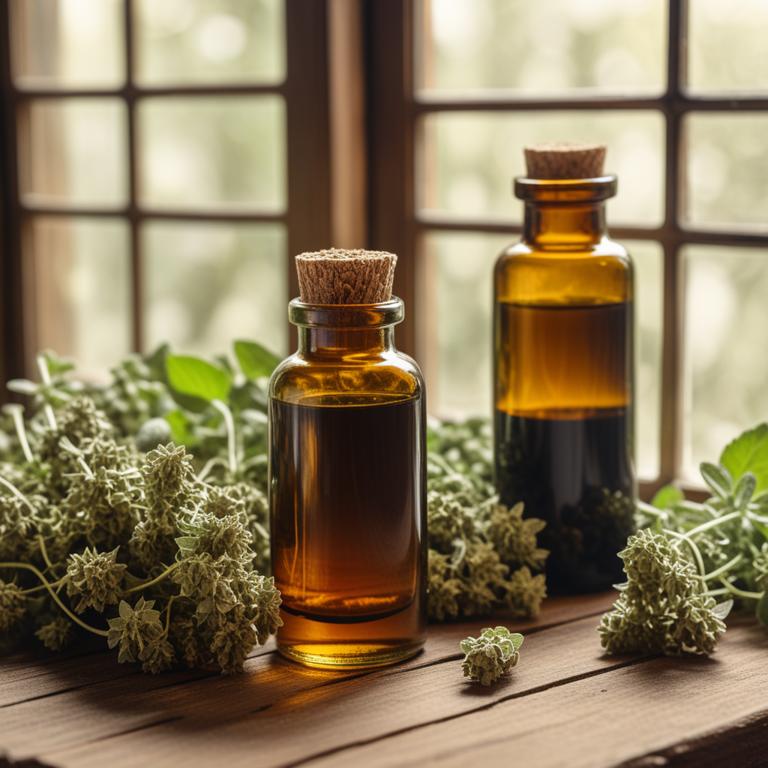
Origanum vulgare tinctures, derived from the leaves and flowers of the common oregano plant, possess antifungal and antibacterial properties that make them effective in treating nail fungus ailments.
The antifungal compounds present in Origanum vulgare tinctures, such as carvacrol and thymol, help to inhibit the growth of fungal pathogens, thereby promoting healthy nail growth and reducing the symptoms of the infection.
The bioactive constituents of Origanum vulgare tinctures, including phenolic compounds and terpenes, contribute to their antifungal and antimicrobial activities, making them a valuable natural remedy for treating nail fungus.
The benefits of using Origanum vulgare tinctures to treat nail fungus include their non-invasive nature, ease of use, and potential to reduce the risk of side effects associated with conventional treatments.
5. Thymus vulgaris tinctures
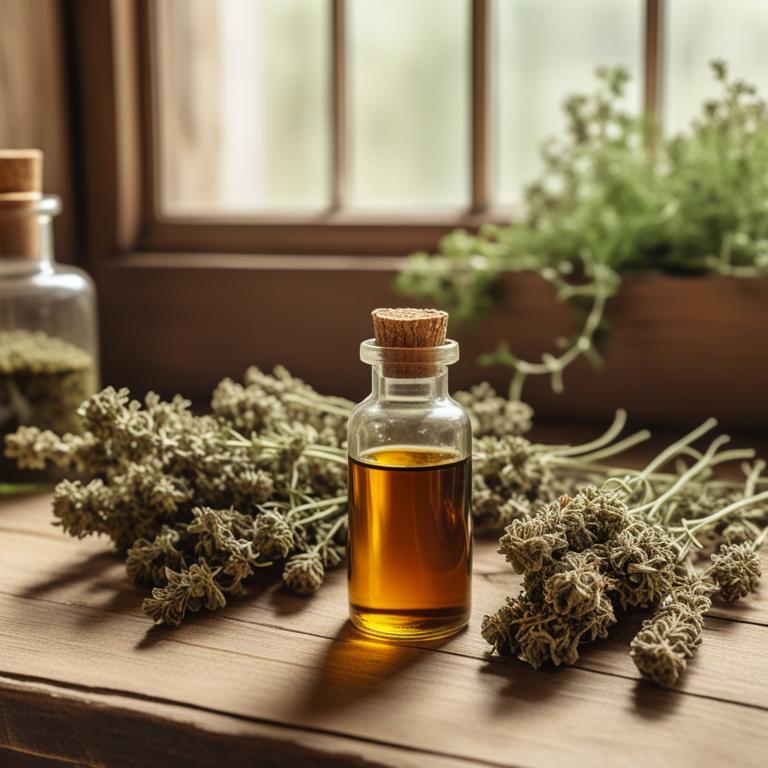
Thymus vulgaris tinctures, derived from the leaves of the thyme plant, have been traditionally used to treat nail fungus ailments due to their antifungal and antimicrobial properties.
The bioactive constituents, including thymol and carvacrol, in these tinctures help to inhibit the growth of fungal pathogens, such as Trichophyton rubrum, that cause nail fungus.
By applying the tincture topically to the affected area, it helps to reduce fungal colonization and promote a healthy nail environment, ultimately leading to the resolution of symptoms.
The benefits of using Thymus vulgaris tinctures to treat nail fungus include their natural and non-invasive approach, reduced risk of side effects, and cost-effectiveness compared to conventional treatments.
Related Study
According to "Journal of the European Academy of Dermatology and Venereology : JEADV", Thymus vulgaris tinctures for nail fungus may be effective due to their potent antifungal activity, which was found to result primarily from an extensive lesion of the cell membrane, thereby inhibiting the growth of fungi.
6. Syzygium aromaticum tinctures
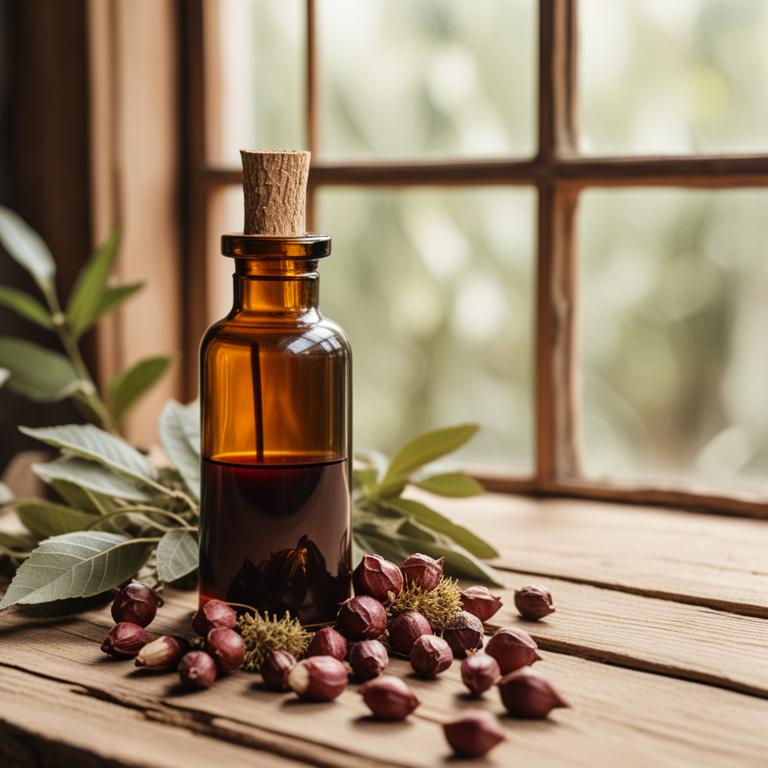
Syzygium aromaticum tinctures, derived from the bark of the clove tree, are a natural remedy for treating nail fungus ailments due to their antifungal and antimicrobial properties.
These properties help to inhibit the growth of fungi that cause nail infections, thereby promoting healthy nail growth.
The bioactive constituents of Syzygium aromaticum tinctures, including eugenol and caryophyllene, exhibit potent antifungal activity and help to reduce inflammation and discomfort associated with nail fungus.
The benefits of using Syzygium aromaticum tinctures to treat nail fungus include a reduction in symptoms, improved nail appearance, and a lower risk of infection recurrence.
7. Cinnamomum verum tinctures
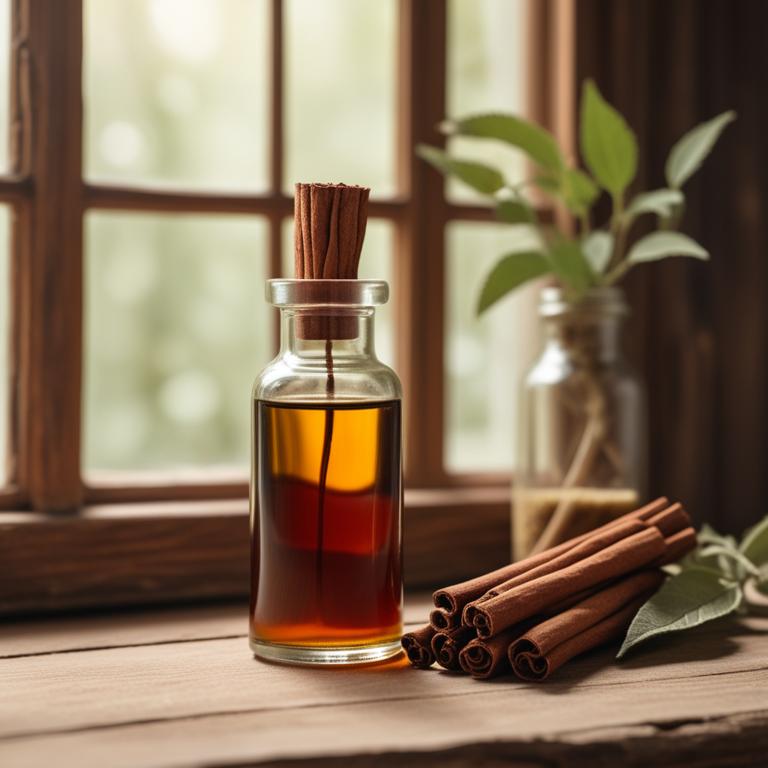
Cinnamomum verum tinctures have been traditionally used to treat nail fungus, a common fungal infection affecting the nails.
The antifungal and antimicrobial properties of this herbal preparation help to combat the fungal growth, thereby promoting healthy nail growth.
The bioactive constituents, including cinnamaldehyde and linalool, exhibit potent antifungal activity, which aids in the treatment of nail fungus.
By using Cinnamomum verum tinctures, individuals can benefit from the natural and effective treatment of nail fungus, without the risk of adverse side effects associated with conventional medications.
8. Zingiber officinale tinctures

Zingiber officinale tinctures, derived from the rhizome of the ginger plant, possess antimicrobial and anti-inflammatory properties that make it an effective herbal preparation to treat nail fungus ailment.
The bioactive constituents, including gingerols and shogaols, in these tinctures help to inhibit the growth of fungi, reducing the severity of the infection.
By using Zingiber officinale tinctures, individuals can benefit from reduced fungal growth, improved nail health, and a decrease in symptoms such as discoloration and brittleness.
The benefits of using Zingiber officinale tinctures to treat nail fungus include a natural and non-invasive approach, reduced risk of side effects, and the potential to promote overall nail health and well-being.
9. Eucalyptus globulus tinctures
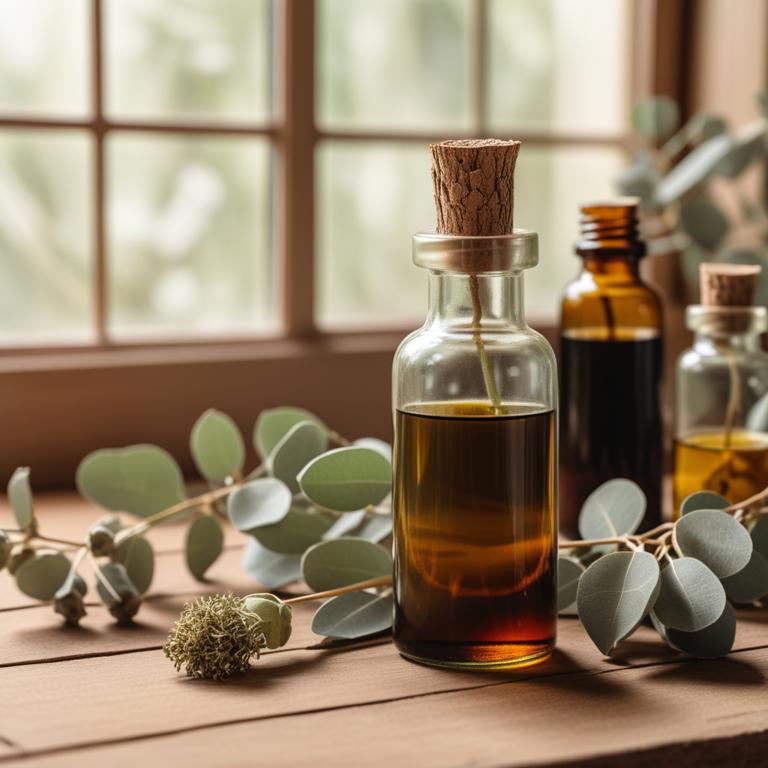
Eucalyptus globulus tinctures have been used as a natural remedy to treat nail fungus ailment, primarily due to their antimicrobial and antifungal properties that help to combat fungal infections.
The bioactive constituents, including eucalyptol and alpha-pinene, in this herbal preparation exhibit potent antifungal activity, inhibiting the growth of fungi and promoting a healthy nail environment.
By creating an inhospitable environment for fungal growth, eucalyptus globulus tinctures help to treat nail fungus by reducing the severity of symptoms and preventing further infection.
The benefits of using eucalyptus globulus tinctures to treat nail fungus include their natural origin, non-invasive treatment method, and potential reduction in the risk of antibiotic resistance.